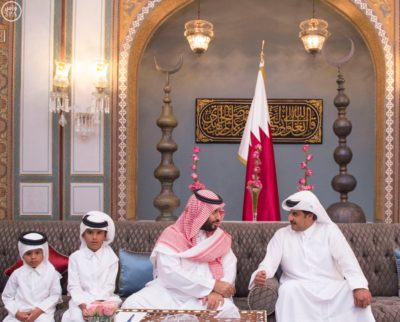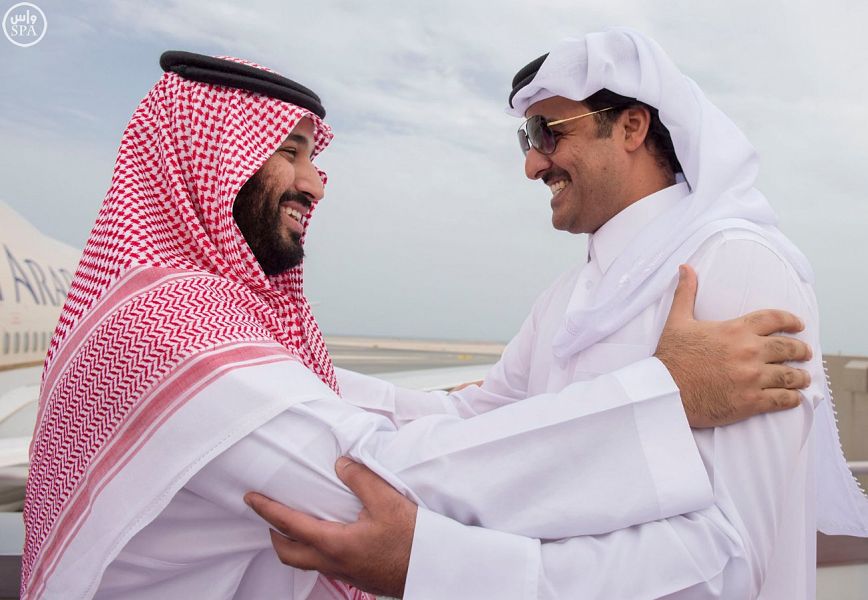Tensions continue to run high for a sixth straight day in the GCC between Saudi Arabia and Qatar regarding relations with regional rival Iran, according to reports.
Despite a strong show of unity for the recent visit of President Trump to the Kingdom,
“[t]ensions in the Gulf were laid open for a sixth day, with the media in Saudi Arabia and the United Arab Emirates accusing Qatar of supporting extremism and undermining regional unity,” according to Bloomberg, which broke down the rhetoric and deterioration in ties by website and newspaper in the region.
“Bark as you wish, Qatar won’t change its principles,” the Qatari newspaper AlRaya said in response to the U.A.E. and Saudi media criticism, according to the Bloomberg roundup. Qatar won’t accept “guardianship from anyone” it said, and questioned why “fostering relations and exchanging congratulations with a neighbor is now considered a crime?”
Regional expert and commentator Bruce Riedel wrote in Al Monitor that the GCC continues to show signs of “splintering” less than two weeks after the Riyadh Summit, highlighting how tensions have escalated with the back and forth accusations in the media following Qatar’s claim that its news services were hacked, and Saudi Arabia responding by blocking those services in the Kingdom, as well as escalating the argument.
“There is growing unease with the summit’s intense animosity toward Iran and increasing concerns that the Saudis are inflaming the sectarian divide between Sunnis and Shiites. Trump’s domestic troubles are also raising doubts over whether Washington is reliable,” Riedel writes.

Saudi Arabia’s Deputy Crown Prince Mohammed bin Salman and Qatar’s Sheikh Tamim bin Hamad Al Thani.
“Saudi largesse will ensure the Sunni alliance does not completely unravel. A core group of states share Riyadh’s hatred of the Iranians or are prepared to indulge Riyadh. But many more states are eager to avoid fanning the sectarian divide. They blame both Riyadh and Tehran for stoking tensions. For all of them, their own national interests trump Islamic or Sunni unity.”









